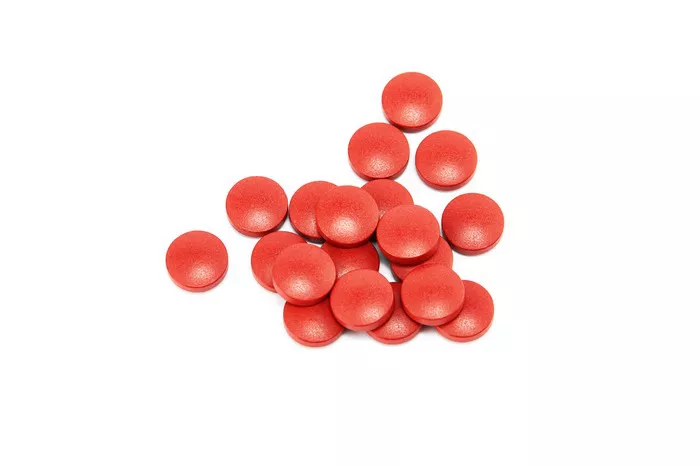Vitamins are essential nutrients that are required in small amounts to maintain good health. While vitamins can be obtained through a balanced diet, many people choose to supplement their intake with vitamin pills. In this article, we will explore how vitamins are made into pills, the different forms of vitamin pills, and the manufacturing process.
Different forms of vitamin pills
Vitamin pills come in different forms, including tablets, capsules, and soft gels. Tablets are the most common form of vitamin pills and are made by compressing powdered vitamins into a solid form. Tablets can be coated to make them easier to swallow and to prevent them from breaking down too quickly in the stomach.
Capsules are another form of vitamin pills and are made by filling a gelatin or vegetarian capsule with powdered vitamins. Capsules are typically easier to swallow than tablets and may be a better option for individuals who have difficulty swallowing pills.
Soft gels are a type of capsule that contains liquid vitamins. Soft gels are typically used for fat-soluble vitamins, such as vitamin E and vitamin D, which are better absorbed in a liquid form.
Manufacturing process
The manufacturing process for vitamin pills varies depending on the form of the pill. For tablets, the manufacturing process begins with the raw materials, which are typically sourced from natural sources such as plants or animals. The raw materials are then processed to extract the vitamins and other nutrients.
The extracted vitamins are then mixed with other ingredients, such as binders and fillers, to create a powder. The powder is then compressed into a tablet form using a tablet press. The tablets are then coated to make them easier to swallow and to prevent them from breaking down too quickly in the stomach.
For capsules, the manufacturing process begins with the raw materials, which are processed to extract the vitamins and other nutrients. The extracted vitamins are then mixed with other ingredients, such as fillers and lubricants, to create a powder.
The powder is then filled into a capsule using a capsule-filling machine. The capsules are then sealed to prevent the powder from spilling out. Vegetarian capsules are made from plant-based materials such as cellulose, while gelatin capsules are made from animal by-products.
For soft gels, the manufacturing process begins with the raw materials, which are processed to extract the liquid vitamins. The liquid vitamins are then mixed with other ingredients, such as fillers and stabilizers, to create a liquid mixture.
The liquid mixture is then filled into a soft gel capsule using a soft gel encapsulation machine. The capsules are then sealed to prevent the liquid from spilling out.
Quality control
Quality control is an important part of the manufacturing process for vitamin pills. The raw materials are tested for purity and potency to ensure that they meet the required standards. The finished products are also tested for purity, potency, and quality to ensure that they meet the label claims.
Manufacturers are required to follow Good Manufacturing Practices (GMPs) to ensure that their products are safe and effective. GMPs include guidelines for equipment, personnel, and facilities, as well as procedures for testing and quality control.
Safety considerations
While vitamin pills can be a convenient way to supplement nutrient intake, it is important to use them safely. Taking excessive amounts of vitamins can lead to toxicity and adverse effects. For example, taking too much vitamin A can cause nausea, vomiting, and dizziness, while taking too much vitamin D can lead to hypercalcemia, which can cause symptoms such as weakness, confusion, and kidney damage.
It is important to follow the recommended dosage on the supplement label and to consult with a healthcare provider before starting any new supplement regimen. Certain vitamins can interact with medications or medical conditions, so it is important to discuss supplement use with a healthcare provider.
Conclusion
Vitamin pills are a convenient way to supplement nutrient intake, but it is important to understand how they are made and to use them safely. Vitamin pills come in different forms, including tablets, capsules, and soft gels, and are made through a manufacturing process that involves extracting vitamins from raw materials and mixing them with other ingredients.
Quality control is an important part of the manufacturing process to ensure that the finished products meet purity, potency, and quality standards. It is important to use vitamin pills safely and to follow the recommended dosage on the supplement label. With proper use, vitamin pills can help maintain optimal health and wellbeing.
[inline_related_posts title=”You Might Be Interested In” title_align=”left” style=”list” number=”6″ align=”none” ids=”5111,5081,5057″ by=”categories” orderby=”rand” order=”DESC” hide_thumb=”no” thumb_right=”no” views=”no” date=”yes” grid_columns=”2″ post_type=”” tax=””]

































